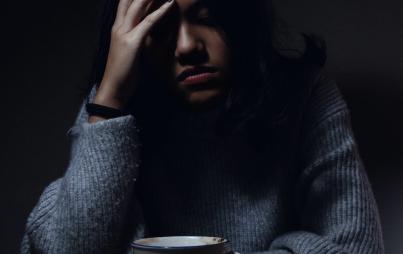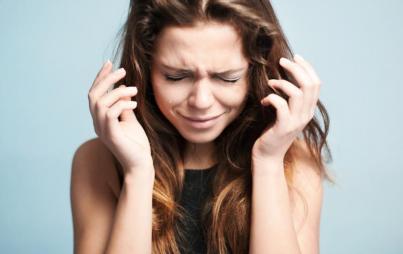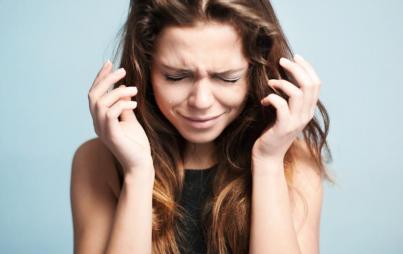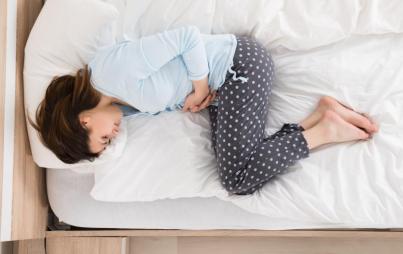
Photo by Anthony Tran on Unsplash
This article first appeared on SHE'SAID' and has been republished with permission.
Let’s face it; periods are awful. For many of us, they cause pain, ruin our underwear – and our plans – and bring on mood swings from hell.
And thanks to the sheer prevalence of this experience, most of us are familiar with Premenstrual Syndrome, or PMS – a collection of symptoms that cause a world of discomfort in the lead-up to your period (read: cramps, bloating, digestive issues and bouts of feeling teary for no explicable reason). But sometimes the negative slump you get before or during your period can seem more intense than can be written off as PMS. In fact, for a small percentage of women, that time of the month can actually trigger full-blown depression.
So if your period’s ever effected your mood severely enough as to interfere with your ability to work and carry on relationships, you might be suffering from a lesser known condition known as Premenstrual Dysphoric Disorder, or PMDD.
What to look out for

Approximately three to nine per cent of women experience menstrual changes so severe they can’t keep up their daily routines; this is typically diagnosed as PMDD. Symptoms usually start about seven to ten days before starting your period, and continue for the first couple of days of bleeding. Like PMS, PMDD can cause breast tenderness, bloating and sleep and eating habit changes. Most significantly though, women suffering from PMDD will also experience profound feelings of sadness, hopelessness, anxiety, tension, extreme moodiness and irritability.
You Might Also Like: Why I’m Giving Up Periods For Good
Getting a diagnosis

Because the symptoms of PMDD can mirror depression, it can be easy to misdiagnose the issue, so it’s important to have all your symptoms evaluated by a professional.
“The symptom of depression might be general depression and might be present throughout the menstrual cycle, with or without exacerbation or worsening premenstrually. Or it might also occur only premenstrually,” says New York University Psychiatry and Gynecology Professor Uriel Halbreich.
“Only when it occurs exclusively premenstrually would it be considered a symptom of PMDD.”
As well as eliminating depression, other conditions such as endometriosis, menopause and hormonal imbalance have to be ruled out before your doctor can start to look at a treatment plan that’s right for you.
So, what causes it?

Unfortunately, like PMS, the exact causes of PMDD are still largely unknown. Most researchers believe it could be triggered by the hormonal change to the brain caused by menstruation, and some studies have suggested a link between PMDD and low levels of serotonin – the brain chemical responsible for moderating our mood, sleep and pain, however it still isn’t completely clear as to why there are some women who appear to be more prone to suffering from PMDD than others. The good news though, is there are plenty of treatment options for getting on top of it.
Getting on top of it
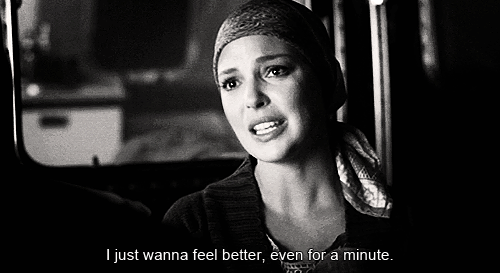
There are four main treatments for PMDD: good nutrition (read: avoiding mood-interfering stimulants like caffeine, sugar, alcohol and processed foods and loading up on brain-friendly omega 3s), regular exercise (staying active has been repeatedly shown to promote the release of feelgood brain chemicals, lower stress hormones and is a great way to beat period cramps too, so it’s a win-win), counseling, and medication have been shown to have the most benefit, although they can’t actually cure it altogether. When lifestyle changes aren’t enough, most medical professionals will prescribe one of two different kinds of medication to help treat the disorder.
“One is a general approach; suppression of ovulation. The other is treating with antidepressants, primarily selective serotonin reuptake inhibitors” explains Halbreich.
Stopping ovulation can prevent the disorder by changing the onslaught of hormones released during the menstrual cycle, and is usually done through a contraceptive, like the Pill. Antidepressants work by adjusting the chemicals in the brain to treat the possible imbalance, but need to be taken every day or in between ovulation and the beginning of your period on a long-term basis in order to be effective.



